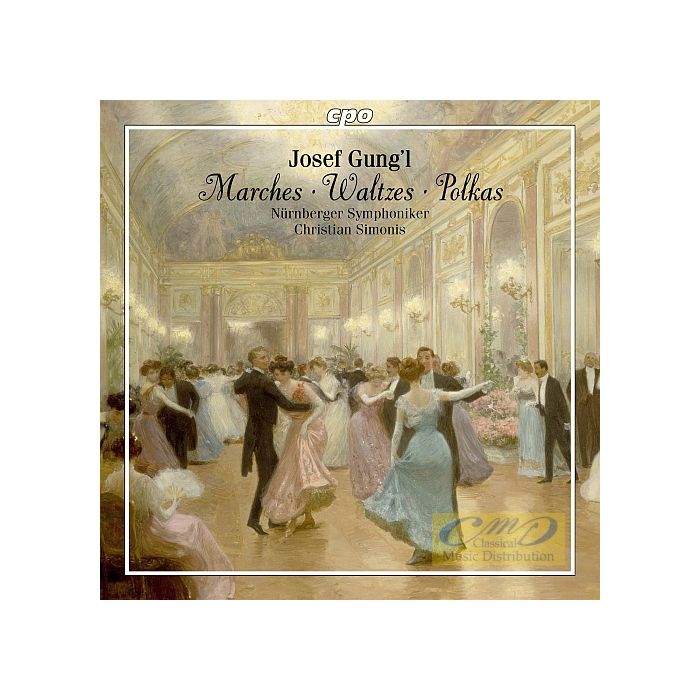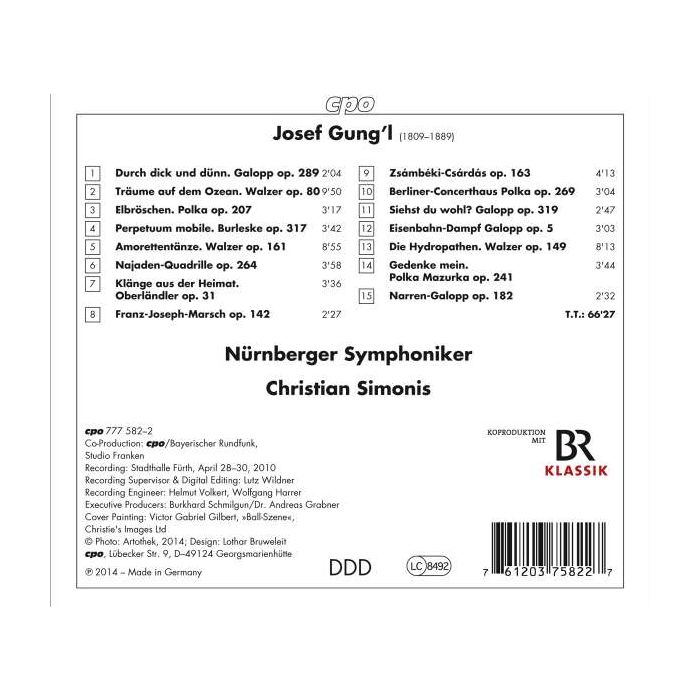
(Produkt nie został jeszcze oceniony)

kompozytor
Gung’l, Josef
tytuł
Gung’l: Waltzes, Marches, Polkas
wykonawcy
Gung'l, Josef, Nuernberger Symphoniker, Simonis, Christian
nr katalogowy
CPO777582-2
opis
During the nineteenth century Johann Strauß and his brother Josef held absolute sway in the realm of entertaining music. Along with Christian Simonis, however, cpo is now demonstrating for the third time that there were other dashing composers blessed with the gift of melodic invention: Josef Gung'l now follows Benjamin Bilse and Richard Eilenberg. Gung'l, a child of the Habsburg Empire, was born in Hungary as the descendant of German settlers. He later traveled throughout Europe and never stayed all that long in one place: Berlin, Munich, New York, St. Petersburg, Brno, Schwerin, Frankfurt, and finally Weimar were the main stations for him and for his orchestra, which lives on even today in the name of Munich's largest and oldest amateur orchestra, the »Wilde Gungl.« When Gung'l organized his first orchestral concert in Berlin from Graz, it was announced as follows: »Concert à la Strauss performed by the Schwarzenbacher Capelle from Graz under the personal leadership of its director, Mr. Gungl.« Like his evident model Strauß had done in Vienna, Gung'l was the first to establish himself with a private orchestra in Berlin. The »Graz Lanner« became the »Berlin Strauß.« Gung'l's last major appearance was in Paris in 1881, when he was called on to serve as the music director of the opera balls during the winter season. His French publisher introduced him as follows: »If there is a name that can be placed side by side with that of Johann Strauß, then it is certainly that of Josef Gungl, who in the New World and the Old World has reaped laurel wreaths, renown, and happiness.«
nośnik
CD x 1
wydawca
CPO
data wydania
28.03.2014
EAN / kod kreskowy
761203758227
Produkt nagrodzony:
MusicWeb International: 'Recording of the Month' (2014)
58,00 zł
Produkt na zamówienie
Wysyłka ustalana indywidualnie.
Darmowa wysyłka dla zamówień powyżej 300 zł!
Darmowy kurier dla zamówień powyżej 500 zł!
sprawdź koszty wysyłki
